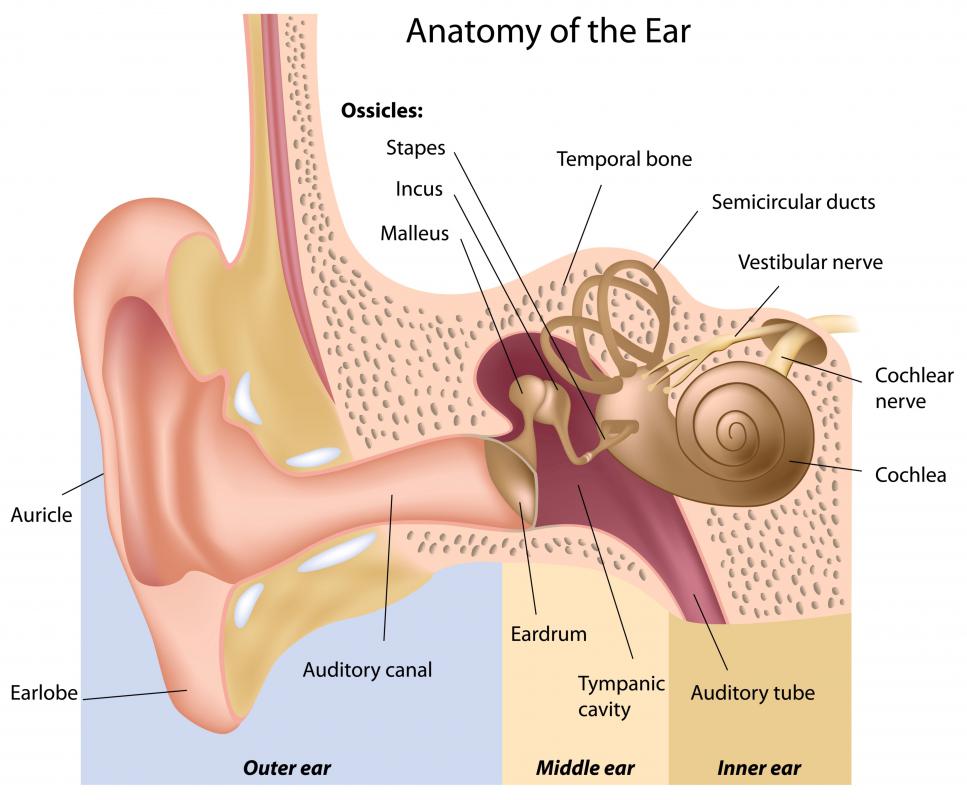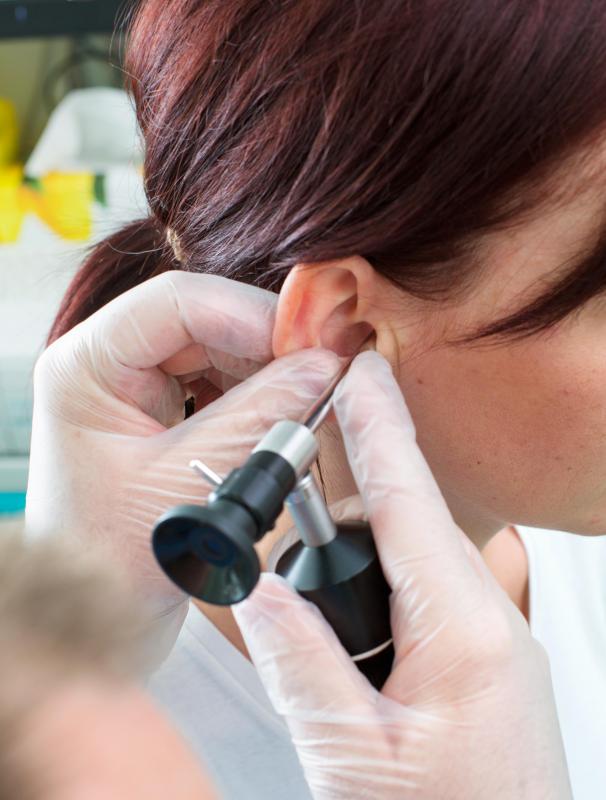At TheHealthBoard, we're committed to delivering accurate, trustworthy information. Our expert-authored content is rigorously fact-checked and sourced from credible authorities. Discover how we uphold the highest standards in providing you with reliable knowledge.
What are the Most Common Causes of Hearing Loss in One Ear?
Hearing loss in one ear, called unilateral hearing loss, is hearing impairment of one ear as opposed to deafness in both ears. No single cause of this condition exists and it has etiological similarities to total deafness. People suffering from hearing loss in one ear typically have difficulty following conversations in areas with a high ambient noise level and tend to favor one side when listening to others. Treatments vary based on the severity of the condition. Although not as severe as complete hearing loss, one-sided deafness still causes learning and communication issues.
Unilateral hearing loss can be a birth defect or result from negligent prenatal care. During a pregnancy, some women may be given antibiotics or a special diet to ensure the health of their baby and stave off any illnesses or infections the baby might suffer in the womb. If this is not done, one consequence may be hearing loss. Also, if a pregnant mother consumes alcohol, smokes cigarettes or suffers some type of trauma near the baby, birth defects like single-sided deafness may result.

If other family members are hard of hearing or deaf, the condition may be acquired through genetics. The most common genetic infliction related to this condition is otosclerosis. This disease causes bones in the ear to grow at an excessive rate, resulting in the uneven distribution of sound to the ear.
Cerumen, also known as earwax, impedes sound waves and can cause hearing loss in one ear. Fortunately, hearing loss caused by obstructions in the ear canal is usually easy to resolve. Doctors typically remove the blockage with forceps, although surgery may be required in extreme cases.

Finally, chronic ear infections may impair hearing in one ear. Ear infections result in fluid building up in the middle ear. The presence of such fluids interferes with the eardrum and causes a loss of hearing. If left untreated, such losses can be permanent.
The signs of hearing loss in one ear are subtle due to the fact that the other ear continues to function fully. Typically, sounds are muffled or distorted in an ear that is impaired. Sufferers also have trouble discriminating between sounds in loud settings.

Rectifying the infirmity is contingent on the cause of unilateral hearing loss. If the cause is earwax buildup or an infection, the likelihood of restoring the hearing in one ear is high due to the medical and technological advances that have been made. Birth defects or hereditary issues are usually not reversible. A doctor may prescribe a hearing aid to help a sufferer cope.
AS FEATURED ON:
AS FEATURED ON:
















Discussion Comments
Chronic ear infection would get my vote. My mother has had loss of hearing in one ear since she had an ear infection and let it go until her hearing was permanently damaged. She didn't think there was anything wrong and so she didn't go to the doctor.
Also, loud noises in one ear can also damage hearing in that ear. It's usually a sharp noise, like a gunshot, but loud noises can cause sudden hearing loss in one ear. It's not common, but it does happen.
It's just another good reason to see a doctor if your ear is hurting or you have hearing loss symptoms. These may be treatable if they're caught in time.
Post your comments